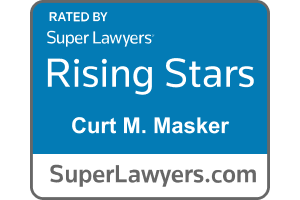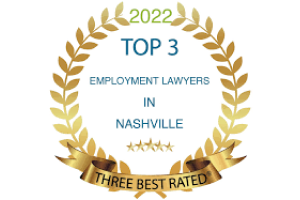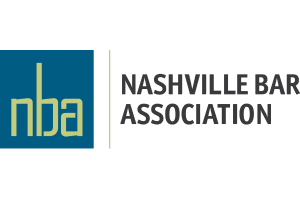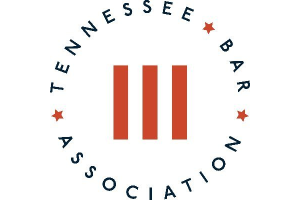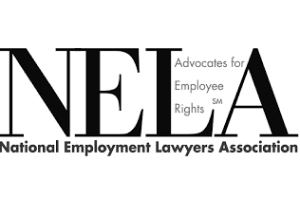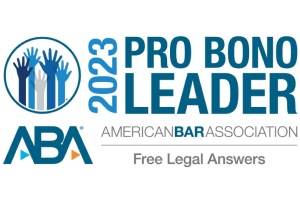for Workers
Free Speech / First Amendment Retaliation
Nashville First Amendment Retaliation Lawyer
Citizens do not surrender their First Amendment rights by accepting public employment. In fact, in many circumstances, government employees are entitled to speak out on matters of public concern without fear of being retaliated against. If you were fired soon after exercising your First Amendment rights, contact Rickard Masker, PLC for a free online case review.
Our Nashville-based First Amendment retaliation lawyers fight for public employees who are terminated after speaking on matters of public concern. You can reach us by calling the number above or online.
As discussed in detail below, these retaliation claims are highly fact specific, and speaking with an experienced retaliation lawyer to review the facts of your case is a necessary first step.
First Amendment Quick Facts
- Applies to government employers
- Does not apply to private sector employers
- But other legal protections exist under civil service rules and for whistleblowers and those who engage in protected activity under various federal and state employment laws
- Depending on several factors, may prohibit pubic employers from firing employees for speaking on matters of “public concern” such as politics, tax policy, and corruption
First Amendment Protections for Public Employees
The First Amendment of the U.S. Constitution states:
Congress shall make no law respecting an establishment of religion, or prohibiting the free exercise thereof; or abridging the freedom of speech, or of the press; or the right of the people peaceably to assemble, and to petition the Government for a redress of grievances.
Unlike private sector employees, public sector workers enjoy First Amendment speech protections in some circumstances. These protections are grounded in the belief that government employees are often in the best position to ferrate out inefficiencies and corruption in government, and communicating this information to the public at large should be encouraged and protected.
Examples of First Amendment retaliation may include being fired or treated poorly soon after you:
- Posted a political opinion on Facebook
- Participated in a political protest, e.g., Black Lives Matter
- Wrote a letter to the editor of a local newspaper criticizing the school board that employs you
- Reported government spending irregularities
- Provided truthful sworn testimony outside your ordinary job duties
Do you have a free speech retaliation claim? Contact our Nashville-based retaliation lawyers today for a free online case review.
Proving a First Amendment Retaliation Claim in Tennessee
Speech by citizens on matters of public concern lies at the heart of the First Amendment, which “was fashioned to secure unfettered interchange of ideas for the bringing about of political and social changes desired by the people.” Roth v. United States, 354 U.S. 476, 484 (1957). On the other hand, “[g]overnment employers, like private employers, need a significant degree of control over their employees’ words and actions; without it, there would be little chance for the efficient provision of public services.” Garcetti v. Ceballos, 547 U.S. 410, 418 (2006).
Whether or not the First Amendment protects a public employee’s speech depends on a careful balance “between the interests of the [employee], as a citizen, in commenting upon matters of public concern and the interests of the State, as an employer, in promoting the efficiency of the public services it performs through its employees.” Pickering v. Board of Ed. of Township High School Dist. 205, Will Cty., 391 U.S. 563, 568 (1968).
To establish a claim for First Amendment retaliation, a public employee must show that:
- she engaged in constitutionally protected speech or conduct;
- an adverse action was taken against her that would deter a person of ordinary firmness from continuing to engage in that conduct; and
- the adverse action was motivated at least in part by her protected conduct.
What Is Constitutionally Protected Speech?
Whether or not a public employee’s speech or conduct is constitutionally protected is determined on a case-by-case basis using a two-step analysis that assesses:
(1) Whether the statement in question constitutes a matter of public concern and whether the employee spoke as a private citizen or public employee in the course of employment, Dambrot v. Cent. Michigan Univ., 55 F.3d 1177, 1186 (6th Cir. 1995); and
(2) If the speech is protected, then the court applies the Pickering balancing test to determine whether the plaintiff’s “interest in commenting upon matters of public concern … outweigh[s] the interest of [the government], as an employer, in promoting the efficiency of the public services it performs through its employees,” Pickering, 391 U.S. at 568.
A. What Is “Public Concern”?
Whether or not speech is protected in a given case is determined based on the content, form, and context of a given statement.
Speech on matters of public concern may include:
- Testifying before a legislative body or in a court of law
- Opposing a school board’s failure to follow state law or its own policies
- Speaking out about voter suppression
- Opposing a school’s racially discriminatory policies
- Criticizing government corruption, inefficiency and waste (as a concerned citizen)
- Commenting on the inadequacy of government services
- Raising awareness of public health and safety concerns
The following are generally NOT considered matters of public concern:
- Grievances about internal office policies or procedures
- Emails discussing low office morale
- Other matters not of political, social, or other concern to the public
It is important to note that the government’s burden in justifying a particular discharge varies depending on the nature of the employee’s expression. Generally, statements involving elections, legislation, and corruption are afforded a greater degree of protection. However, even statements involving the democratic process may enjoy less protection where the speech conveys no special insight on the matter, thus diminishing public interest in the speech. Bennett v. Metro. Gov’t of Nashville & Davidson Cty., 977 F.3d 530 (6th Cir. 2020).
B. Pickering Balancing Test
The Pickering test is used “to determine [whether] the employee’s free speech interests outweigh the efficiency interests of the government as employer.” Gillis v. Miller, 845 F.3d 677, 684 (6th Cir. 2017). The test considers the “manner, time, and place of the employee’s expression.” Rankin v. McPherson, 483 U.S. 378, 388 (1987). This analysis is legally nuanced and requires a careful review by an experienced First Amendment retaliation lawyer.
Do Not Wait – Protect Your Constitutional Rights
First Amendment retaliation claims are complex and you need an experienced Nashville retaliation attorney in your corner. Contact us today for a free online case review.


